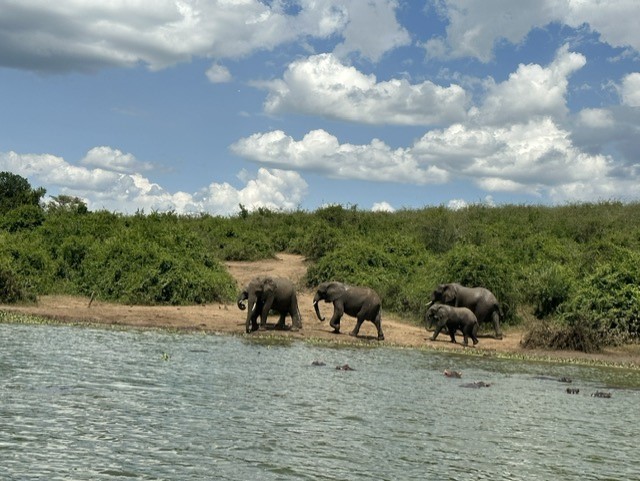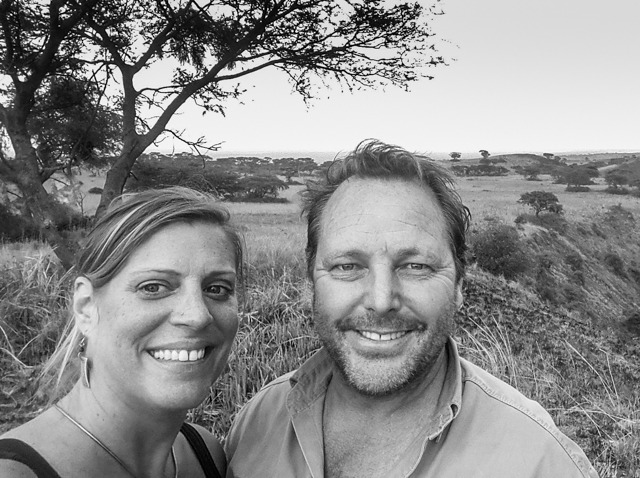Camping has always been a big part of Kevin and Michelle Sutton’s ethos.

Originally from British Columbia, they’re drawn to coastal forests and towering mountains and have mastered the menu around many camp stoves.
The Vancouver couple has now set up camp, so to speak, on the other side of the globe and turned it into a business.
“You don’t really think you are going to get into the tourism industry, but we started to see the tourism industry grow,” said Kevin.
“We decided to take a leap for it,” Kevin Sutton.
“If you told me when I landed in Uganda this is where I’d be sitting, well here we are,” Michelle Sutton.
“My favorite part in all of this is giving people an experience,” added Michelle.
The couple originally moved to the bustling capital city of Kampala and ran a furniture building company. But their dream was always to get back out into nature and combine their love for the outdoors with camping and cooking.
“So we wanted to give people an experience of camping but put a safari spin on it” said Kevin ” You know the classic canvas tents the fire outside the stars,” he said.
The Little Elephant Camp was born. It sits on the edge of postcard-perfect Queen Elizabeth National Park. It’s next level glamping with flush toilets, cook tents and often a front row seat to some of the finest creatures to roam the sprawling savannah stretching all around it.
” You’re doing your daily things at the camp and an elephant walks by. It’s pretty surreal, you do have to pinch yourself sometimes, like ‘Wow, this is my backyard!'” Michelle Sutton.
But the Suttons are not just catering to tourists looking for a unique experience in Africa. They’re also playing a big role in the lives of some of the local people here, in the community they now call their own.
“It’s a very impoverished community,” explained Michelle. “The labour is fairly unskilled and our M.O. is basically to employee those people and give them a job, give them a focus, on the job training, and develop their skills so that they can provide for their families.”
The tourism industry is gaining steam in western Uganda.
Open-air overland rigs carrying excited tourists gripping long lenses, buzz along the red dirt roads. Everyone is sitting or standing on their seats hoping to get a glimpse of an elusive leopard or lazy lion with it’s paws dangling from a prickly tree. Hippos bob their heads out of cool lake water, sweeping the shoulders of their pals in the elephant herd who are also taking a reprieve from the unforgiving sun overhead.
While there has been a huge effort to protect vulnerable species here, people are still the number one threat and it’s not just ivory poachers.
“With the economy as well, people sometimes go in to hunt for bush meat,” explained Derrick Kafuko, conservation educator with Uganda Wildlife Conservation Education Centre. “Doing so, you are also reducing on the prey that animals feed, say antelope.
“What happens if lions and leopards have nothing to hunt? So they may move into the community to kill our livestock. Then there is a conflict people get angry and maybe retaliate.”

Elephants in Queen Elizabeth National Park
“When elephants or hippos are coming into your crops and eating the cabbage or maise, or elephants eating your mangos that is a nuisance,” said Kevin Sutton.
“Some local people have never even visited the park before,” added Michelle.
But as more people become employed in the tourism sector here, awareness grows about the benefit of the wild resource in front of them.
“We are seeing more lions than before,” said Sadam a tour guide in Queen Elizabeth National Park. “The park rangers are doing their jobs in conserving the wildlife and we appreciate that.
“Since the park started to create employment opportunities to the people living in the communities they go on educating people in the community about the importance of these animals.”
An electric fence has been put up on the other side The Little Elephant Camp’s property. It now acts as a buffer between the park and the community, a goal the Suttons had from the beginning.
“We’ve seen the wildlife population around here increase and we’ve definitely made the community around here understand the value of what they have in front of them, which is a national park, and tourism can be something to get involved with,” said Kevin Sutton.

“We’d like to see future generations to come be able to see these animals, said Michelle.
“So it really is our responsibility to do what we can now.”
The transplanted Canadians said they have made this place their home and are hoping to give back to it as much as it has enriched them.





Comments